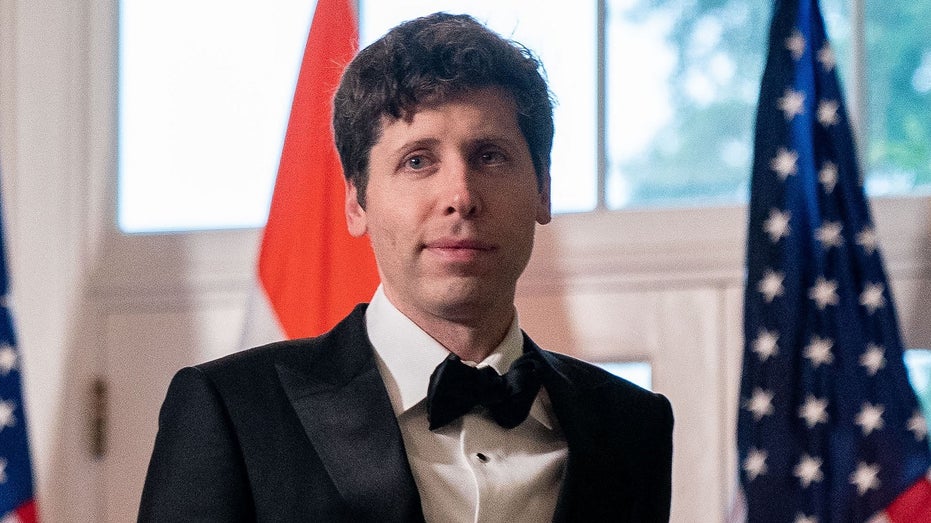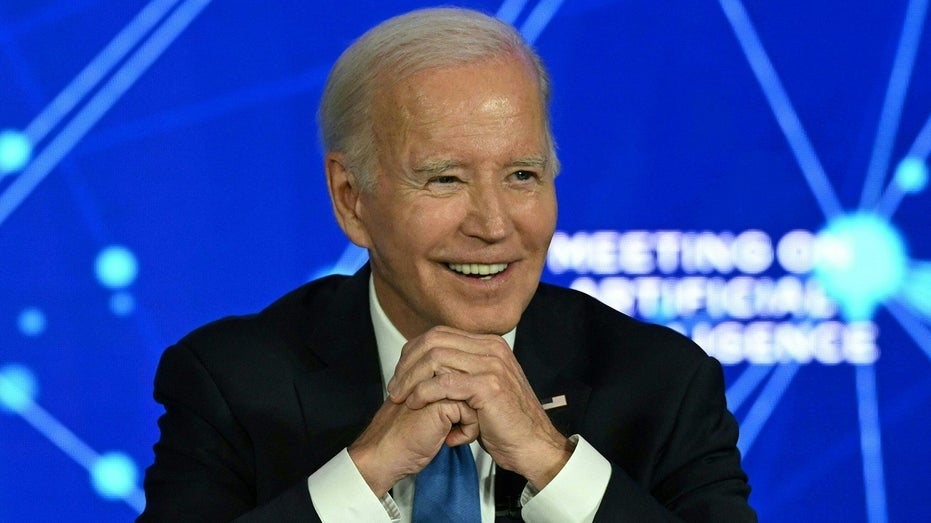Can AI companies be trusted to self-regulate under White House rules? Experts weigh in.
Questions arise over whether major AI companies' voluntary safety measures will be enough
Is it time for an artificial intelligence bill of rights?
Cybersecurity lawyer Leeza Garber provides insight on the regulation of artificial intelligence on Making Money.
In the absence of federal regulations surrounding the development or uses for the advanced artificial intelligence tools surging in popularity in the U.S., some of the biggest names in tech have agreed to comply with a set of voluntary guidelines rolled out by the Biden administration on Friday.
Executives from seven leading AI companies, including ChatGPT-creator OpenAI, Google, and Microsoft, met at the White House and signed on to the agreement secured by President Biden, as part of a broader effort to ensure that AI technology will continue to grow but with appropriate safeguards to prevent abuse.

CEO of OpenAI Sam Altman arrives for an official state dinner in honor of India's Prime Minister Narendra Modi, at the White House in Washington, D.C., on June 22, 2023. (Stefani Reynolds/AFP via Getty Images / Getty Images)
Several experts hailed the move, while others expressed skepticism.
"This kind of voluntary initiative is exactly what industry should be doing right now to avoid draconian legislation that could slow down innovation for U.S.-based companies that must compete globally," said Pete Erickson, CEO of technology event organizer and consulting firm Modev. "I believe it will work well in some areas and less well in others, which is where potential legislation may have to play a role."
BUSINESSES LOOK TO SELF-REGULATE THE USE OF AI IN HIRING
Erickson likened the agreement to the Motion Picture Association movie ratings model, which is a voluntary program that has been used for decades and is still a big part of the media industry today.
He added, "Legislation is coming, but I believe it will be around enforcing industry to set standards versus the government setting the standards."

President Biden discusses his administration's commitment to seizing the opportunities and managing the risks of artificial intelligence, in San Francisco, California, June 20, 2023. (Andrew Caballero-Reynolds/AFP via Getty Images / Getty Images)
Chamber of Progress CEO Adam Kovacevich cheered on the agreement between major tech firms and the White House, telling FOX Business it is a step in the right direction.
"With AI moving forward as quickly as it is, today's commitments from tech companies put some important safeguards in place while Congress works out a legal framework for AI regulation," Kovacevich said. "It's not a permanent solution, but it's one that will increase safety and transparency in the AI sector as lawmakers put legislation together."
AI IS FACING A REGULATION CRACKDOWN WITH OR WITHOUT CONGRESS
He added, "This is a smart, collaborative approach that helps keep consumers safe while keeping the U.S. tech sector at the forefront of AI innovation."

Google and Microsoft are both major players in new generative AI technology. The firms are two of the seven Big Tech companies that have committed to the Biden administration's AI safety pledge. (Jonathan Raa/NurPhoto via Getty Images / Getty Images)
| Ticker | Security | Last | Change | Change % |
|---|---|---|---|---|
| GOOG | ALPHABET INC. | 323.10 | -8.23 | -2.48% |
| MSFT | MICROSOFT CORP. | 401.14 | +7.47 | +1.90% |
Arijit Sengupta, a 20+year AI veteran and CEO and Founder of AI firm Aible, weighed in with a different perspective on the pledge.
"The 'commitments' essentially translate into committing to a lot of process work and vague desires to help with 'society's greatest challenges,'" Sengupta told FOX Business in a statement.
"It is easy for larger companies to promise process-oriented activities that they can afford to conduct but that smaller companies will not have the resources for," he continued. "These sound good but become expensive distractions for smaller companies."
Daniel Marcous, co-founder and chief technology officer at AI-powered tax platform april, said that most of what is in the White House's plan "is already well-recognized by market leaders as a critical requirement from their clients, who are generally businesses embedding AI capabilities into their offerings."
"While it’s great to see the intentions of the U.S. government working along industry leaders to solve the regulation question and commit to their plan, the plan itself is extremely vague and just describes general guidelines for protections," Marcous said.
GET FOX BUSINESS ON THE GO BY CLICKING HERE
He also said that smaller companies will have a more difficult time complying with government requirements surrounding AI.
"Market leaders are already very well positioned to benefit from regulations, as they maintain the resources to uphold and support it," he said. "This means that they have all of the incentive to do so, while still keeping the exact requirements vague."
FOX Business' Chris Pandolfo contributed to this report.





















